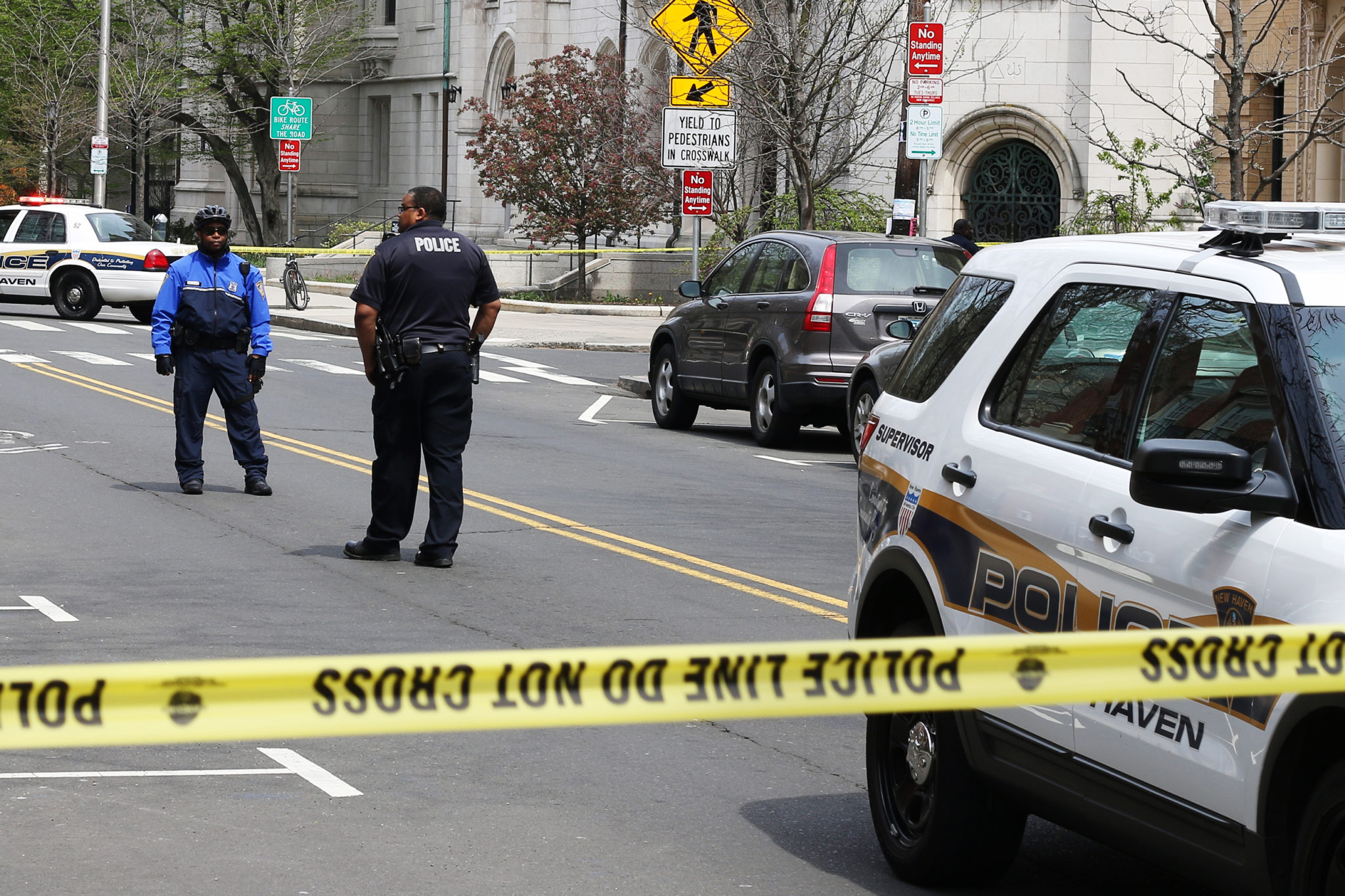
Under pressure from a state deadline to qualify for funding, the New Haven Police Department and City Hall aim to outfit all police officers with body cameras by the middle of next year.
To qualify for state funding for the body cameras and related equipment, the NHPD must make those purchases by June 30, 2017. According to city spokesman Laurence Grotheer, that deadline is now the target date toward which administrators are working as they plan the program.
NHPD spokesman David Hartman said the department has shortlisted two vendors, one of which offers two different types of cameras.
“These are good programs, well-supported programs, supported by the city and the union, and groups throughout the country,” Hartman said, referring to the use of body cameras by police departments.
Discussions about implementing body cameras began nearly two years ago, according to Hartman. After researching different kinds of body cameras, the department tested three different models on officers during a successful three-month pilot program last fall.
Moving forward with the program now depends on financial considerations. The purchase of body cameras for the department’s more than 450 officers is already expensive, Hartman said. But the greater cost is actually digital storage for the video data generated by the cameras, he added.
According to Grotheer, the city would also have to pay for personnel to retrieve, manage and archive the data.
But as of now the plan is still pending, Grotheer said. Relevant city budget discussions will not begin until February and City Hall must come to an agreement with the police union about the specifics of the body cameras, such as the brand of equipment and upgrades to IT systems, he added.
“Mayor Harp continues to believe that the use of body cameras by police officers could provide an important record for accountability among both police officers and members of the public that the police officers encounter,” Grotheer said, adding that Harp has supported the use of body cameras by police officers since she was a state senator.
Barbara Fair, a longtime New Haven activist, said she supported the proposal to outfit NHPD officers with body cameras, as long as officers would not have control over when the cameras are turned on or off. Still, she said, the program would be “just a start,” since even recording incidents of police brutality does not always lead to justice for victims.
She added that potential future turnover in NHPD leadership should not affect the implementation of body cameras. The department, currently headed by Interim Chief Anthony Campbell ’95 DIV ’09, has not yet selected a permanent replacement since Dean Esserman stepped down as chief Sept. 6.
“People have been saying they’ve been brutalized by the police for years, and we never had any evidence until phone cameras,” she said. “Now that we see that this stuff is going on, it should be mandated for all officers.”
Ernie Santiago, Ward 15 alder and member of the Board of Alders Public Safety Committee, said the body camera proposal was discussed in a committee meeting earlier this month, but the implementation is dependent on financial considerations and union approval.
Santiago said that while he supports the use of body cameras, he hopes that having them will not make police officers “hesitate” to perform their duties. But, he said, he believes that residents of Fair Haven will feel safer and “more at ease” once police are outfitted with body cameras.
Yet even as City Hall and the NHPD work toward the implementation of body cameras, some in New Haven have doubts about the value of such a program.
“I expect body cameras will improve police accountability in New Haven so incrementally, it will barely be visible without a microscope,” said Jane Mills, a representative for the local social justice organization People Against Injustice, in an email. “We urge people to keep recording police.”
Though Connecticut laws would make the video footage more accessible than in other states, she said, body cameras alone do not increase police accountability. Additionally, the NHPD currently ignores video evidence of misconduct and may continue to do so without stronger community control and regulatory measures, she added.
The Hamden and East Haven police departments have already implemented body camera programs.







